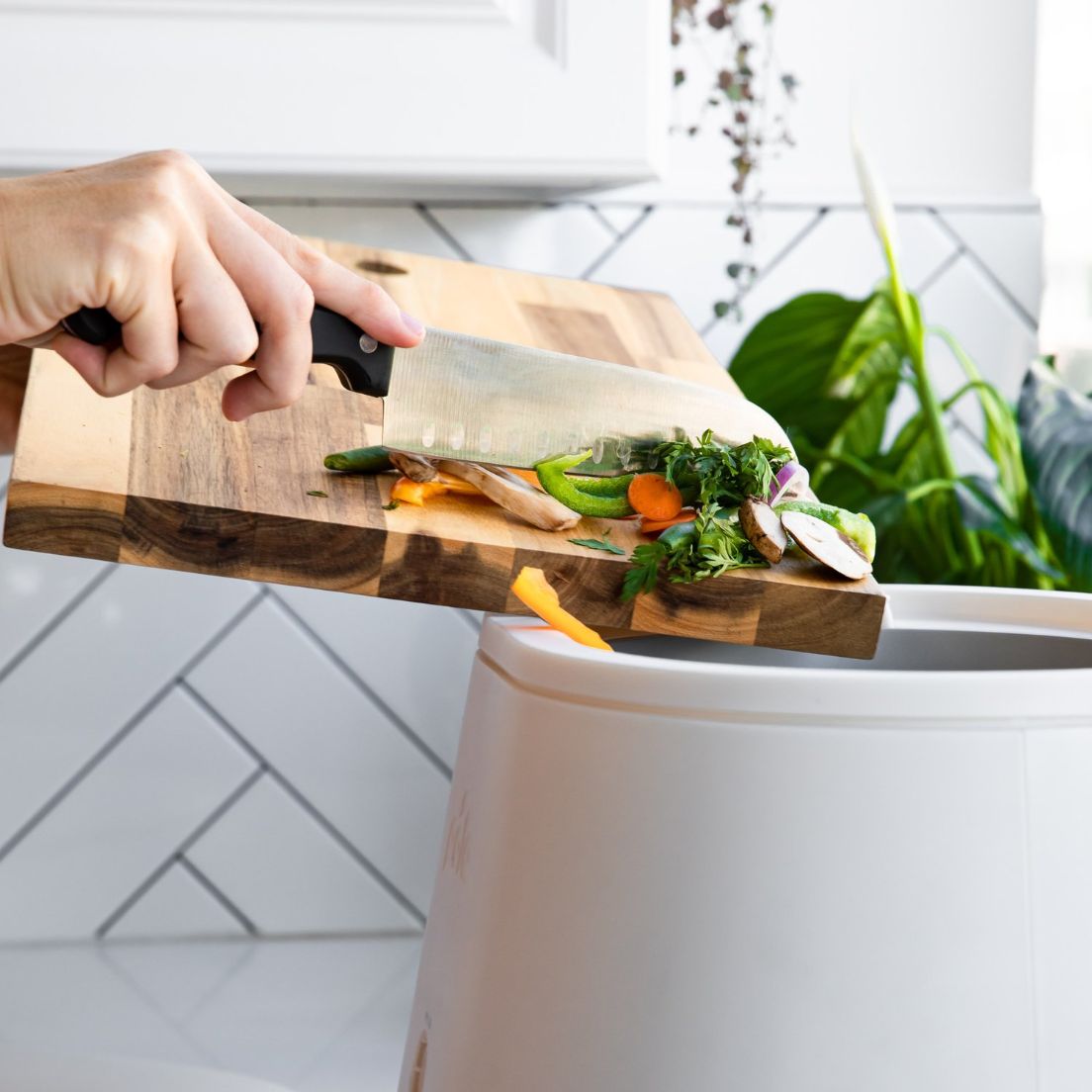
The benefits of fertilizer in your garden and on your lawn seem like a no-brainer: it can help your plants grow, it adds nutrients to the soil, and it is an easy way to keep up with a healthy lawn.
You might not realize that some of the amazing benefits come at a cost: there are fertilizers on the market that can seriously harm your pet and put their health at risk. If you’re worried about what kinds of fertilizers are safe for dogs, we’ve got you covered. We’ll talk about the risks some fertilizers pose to your pet, lots of safe alternatives, and we’ll even answer some commonly asked questions about how toxic fertilizers affect dogs.
Feel free to read through the entire article, or jump to the section that most interests you:
- Is fertilizer bad for dogs?
- 5 alternatives to fertilizer that are pet-safe
- Keeping your dog safe: 5 FAQ’s about fertilizer
Let’s start with a basic, and burning, question: how bad is fertilizer for dogs, really?
Is fertilizer bad for dogs?

Though you might not expect it, some lawn fertilizers are dangerous for dogs. Cocoa mulch and rose fertilizer can cause severe illness, as well as common organic fertilizer nutrients in large amounts or high concentrations, like nitrogen, iron, and potassium.
Cocoa mulch is a common garden additive because it brings tons of benefits and nutrients to soil, but it is made of shells from the cocoa bean that are poisonous to dogs. Because the smell of cocoa mulch is so appealing to dogs, they are more likely to eat the cocoa mulch and experience illness similar to chocolate poisoning.
Before we look at these 5 alternatives to fertilizer, you should know the difference between the general definition of fertilizer, and the legal definition.
The general definition of fertilizer is essentially any input into soil that increases its nutrients and overall fertility. There are legal requirements for fertilizers on the market, which mandates minimum concentrations of nitrogen, phosphate, and potash.
These alternatives are not mandated in any way, but they will definitely add healthy and beneficial nutrients to your soil!
Contact a vet if your pet consumes toxic fertilizer.
5 alternatives to fertilizer that are pet-safe
While there are tons of fertilizer alternatives on the market, only a small number of those are truly pet-safe.
Let’s take a look at 5 notable alternatives that will help you grow your garden and keep your pets away from harm.
1. Compost

There are so many benefits to compost, but adding it to the soil as fertilizer is one of the best ways to increase nutrients in your garden and feed your plants. Compost also helps the soil retain moisture and reduces plant diseases and pests. Compost is considered a slow-release fertilizer, which means plants can access compost’s nutrients gradually over time instead of all at once like traditional fertilizers. To make the most of compost in your garden, read through this comprehensive guide.
Compost is a safer fertilizer alternative for pets because it is not harmful to come into contact with. Plus, it has lower concentrations of iron, nitrogen, and phosphorus. Be careful not to let your dog eat compost though. It is possible your compost contains toxic fungi spores called mycotoxins, which can be very dangerous to consume.
Pro tip: Besides mixing it with soil, compost can be used as mulch, to rejuvenate your lawn, and to supercharge new plantings or spring flowers. For even more ways to use compost, check out this helpful guide.
2. Seaweed

Seaweed fertilizer, or kelp meal fertilizer, is safe for dogs and amazing for your garden. One of the biggest benefits of kelp meal is that it is high in nitrogen, which is hard to achieve in other fertilizer alternatives like compost.
You can find seaweed fertilizer in multiple forms: granulated into a meal or powder and in liquid form, either concentrated or not. While any version is perfect for your garden, try to avoid the concentrated form in case your pet gets into it.
Pro tip: Mix seaweed with fish meal for even more fertilizing power!
4. Fish meal or emulsion

Fish meal, a great fertilizer to mix with kelp meal, is a time-tested method for supercharging plants. Indigenous communities taught the English settlers in Jamestown, VA how to catch fish and bury them in the garden to release nutrients for their plants. It is not harmful for your pet to come into contact with this granular fertilizer, but be careful if it is very smelly; your dog might be attracted to the smell and dig up your garden.
If you’re looking for a quick-release fertilizer to give your plants an immediate boost without worrying about harmful synthetic fertilizer, fish emulsion is for you. This liquid fertilizer is usually concentrated and needs to be diluted–usually 1 tablespoon to 1 gallon of water–before you spray it directly onto your plants. Though this fertilizer is safe for dogs, they might be very attracted to the smell. Try to keep them away from your garden until the smell dissipates, which shouldn’t be more than an hour or so.
Pro tip: Check out this article to see how you can make your own fish emulsion at home! It will definitely be a bit smelly, so make sure to keep it away from your dog!
3. Lomi dirt

Lomi is a countertop electric composter that turns food scraps into nutrient rich dirt in a matter of hours. The end product is safe for pets and great for your garden, so Lomi dirt is an easy and effective fertilizer alternative. Once you add food waste into Lomi and activate its grow mode with a push of a button, Lomi uses heat, abrasion and oxygen to break down scraps and create a product ready to be added to your lawn or garden.
This method is super easy and cheap, and it’s one of the most popular uses of Lomi dirt. Check out what people are saying about Lomi and this blog for more on how to use Lomi dirt around your home and garden.
Pro tip: Just mix Lomi dirt with soil at a ratio of 1:10 and use it for your houseplants or in your garden!

5. Slow release meal fertilizer

Slow release meal fertilizers are great for mixing in with potting soil when you are planting in your garden; they will release nutrients gradually over time, creating a long-lasting food source for your plants.
Finding meal fertilizers that are safe for dogs is pretty simple! Bone meal, blood meal, and even feather meal are harmless for your pets, whether they come into contact with it or end up eating it.
Pro tip: Keep leftover meal fertilizers in a tightly sealed container away from your dog once you’re finished in the garden!
Keeping your dog safe: 5 FAQs about fertilizer
If you’re still curious about the best ways you can make sure your pets are as safe as they can be in your lawn and garden, check out these 5 most frequently asked questions about fertilizers.
1. Can organic fertilizers hurt dogs?

Because organic fertilizers often use generally safe materials like blood meal and bone meal, but they also mix it with very high concentrations of elemental nutrients like nitrogen and phosphorus, the combination can be very dangerous to pets and can make your dog sick.
Organic fertilizers are not harmful to the touch, but because your dog is more likely to smell and consume it, they can be at greater risk of fertilizer poisoning even if it is organic.
2. How long should dogs stay off fertilized grass?

After 48 hours, most or all of the fertilizer should be absorbed into the lawn, making it safe enough for pets to walk on the grass. Until then, pets should stay off fertilized grass for at least 1 to 2 days.
If you live in a small space and your dog needs to go outside during the 1 to 2 day window, consider fertilizing your lawn in stages. Fertilize one half and allow your dog to roam on the other half; just be sure to closely monitor them and keep them on a leash if necessary. After 48 hours, fertilize the other half and allow your dog to return to the half you originally fertilized.
3. What happens if a dog eats fertilizer?

The illnesses caused by ingesting fertilizer can range from mild to severe. Luckily, low concentrations of natural elements like phosphorus and iron are generally non-toxic. This means if your dog walks on grass or plays in a garden a few days after fertilizer application, they should be safe.
You might start to worry if your pet consumed any type of fertilizer straight out of the container; this can be especially dangerous because the fertilizer is in a very high concentration and is not meant to be in contact with skin or the mouth at all.
Pets can experience mouth burns, gastrointestinal irritation, iron poisoning, severe pancreatitis, and even kidney damage. The severity depends on length of exposure and how the pet ingested the poisonous fertilizer.
If you observe your dog exhibiting strange behavior or is showing any symptoms of fertilizer poisoning, contact the Pet Poison Helpline as soon as possible. They will be able to provide veterinary advice if needed.
4. What are the symptoms of fertilizer poisoning in dogs?

When a pet eats fertilizer, symptoms range from very mild to severe. Mild symptoms include slight abdominal pain, excessive drooling, and vomiting and diarrhea. More severe symptoms include severe lethargy, bloody diarrhea, difficulty breathing, and even seizures.
Less common symptoms include problems in their large intestines, which results in bowel obstruction or foreign body obstruction. Other clinical signs of toxic consumption of fertilizer include an inflammation of the pancreas.
If you see any of these symptoms, do not hesitate to call the pet poison Helpline as soon as you can. In serious cases, you may need to bring your dog to the veterinarian immediately for a thorough examination.
5. What should you do if your dog eats fertilizer?

Some fertilizers are more toxic than others, especially in varying amounts. If your dog ate any synthetic fertilizer or any fertilizer with insecticides or herbicides, take them to the vet right away. If not, monitor them closely for any symptoms or speak with a representative at the Pet Poison Helpline.
Their degree of sickness will depend on the amount of fertilizer ingested. A good rule of thumb: if you believe your pet ate more than 0.5 g per 2 lbs of bodyweight, you should call the vet. A 20 lb dog should go to the vet if they eat a teaspoon of fertilizer. Other large ingestions of dangerous fertilizers should be called into the veterinarian immediately.
Whether you decide to pick up pet-safe fertilizer from the garden store or make fertilizer yourself at home, you have tons of options to keep your garden and lawn healthy and friendly for your dog.
Now that you’re an expert in pet-safe fertilizers, you’re ready to start making your own fertilizer at home with Lomi for you or a friend. You can order your Lomi electric composter now!
Written by: Jess Savage
